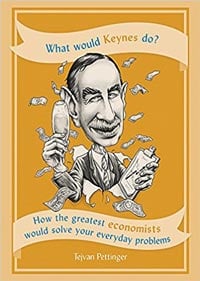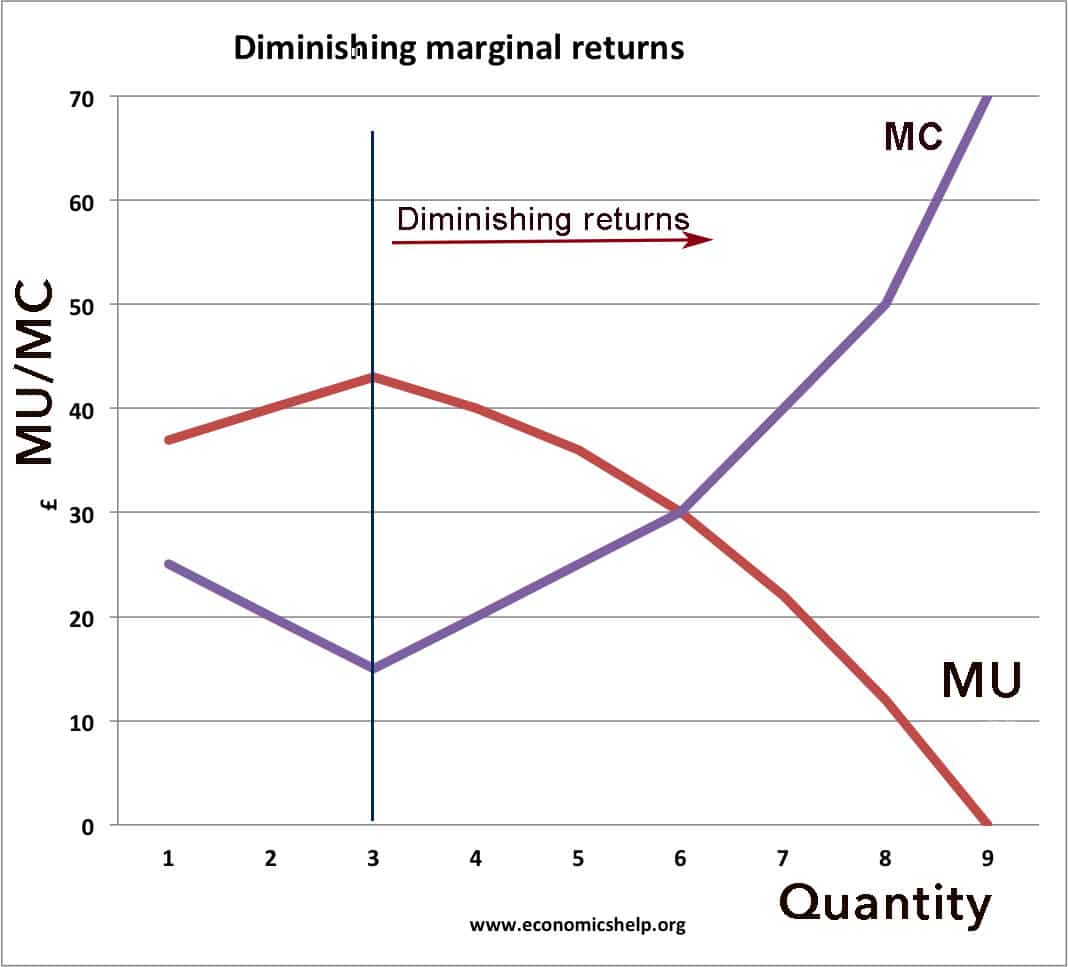
If I enjoy drinking beer. How much should I drink?
Key quote
“My only regret in life is that I did not drink more champagne.”
John Maynard Keynes.
If something is good to do – does it mean it is good to do it to excess?
This question allows us to consider various economic concepts
- Rational choice theory
- Are consumers rational?
- What is a demerit good – and what are the implications for economics?
- Diminishing marginal utility.
- Behavioural economics and poor decision making
- External costs of individual choices.
A basic principle in economics is that where we maximise utility by consuming up to the point where marginal utility (satisfaction) equals the marginal cost.
- Consuming at the margin – means we consider the costs and benefits of conuming one more good.
- Just because we enjoy eating beer or cake – doesn’t mean we would necessarily enjoy consuming another one. What counts is not the total utility or average utility – but the utility of the next unit.
This is an example (with admittedly very expensive beers!)
- After 3 beers, the marginal utility starts to fall.
- After 6 beers the cost of buying a beer is greater than the marginal utility.
- This suggests, that the optimum number of beers is six.
However, is it as simple as trusting our judgement of our marginal utility?
The great economist Irving Fischer was a supporter of prohibition – banning alcohol. (He also was an early critic of the dangers of smoking and red meat.)
The perspective of Fischer was that alcohol is a demerit good – One characteristic of a demerit good is that individuals can make poor decisions. They can under-estimate the costs of alcohol and over-estimate the benefits. It is a normative judgement that individuals make poor decisions – and this can necessitate government intervention.
For example, we may consume six beers a night – but ignore the long-term impact on the quality of our work and the impact on our liver.
Another issue is that of self-control. At the start of the evening, we may feel the optimal number of beers is two – because we have to revise for our exams in the morning. However, after drinking two beers – the alcohol has an effect on our mental perceptions – and we decide to have more than we intended.
However, the next morning when we wake up with a hang-over – we regret our lack of control the night before.
For a recovering alcoholic, the optimal number of beers is always zero – because one drink and they can fall off the wagon.
A final issue is – what about external costs – if we drink three beers but have an accident because we lose control of the car – there is a very high external cost to third parties.
Conclusion
Personally, I don’t drink. Over-rated.
Related
Buy Book UK
- What would Keynes do? at Amazon
- What would Keynes do at Waterstones
- What would Keynes do at Blackwells


Using diagrams, explain why the price elasticity of demand for bp petrol is different than the price elasticity of demand for petrol in general.